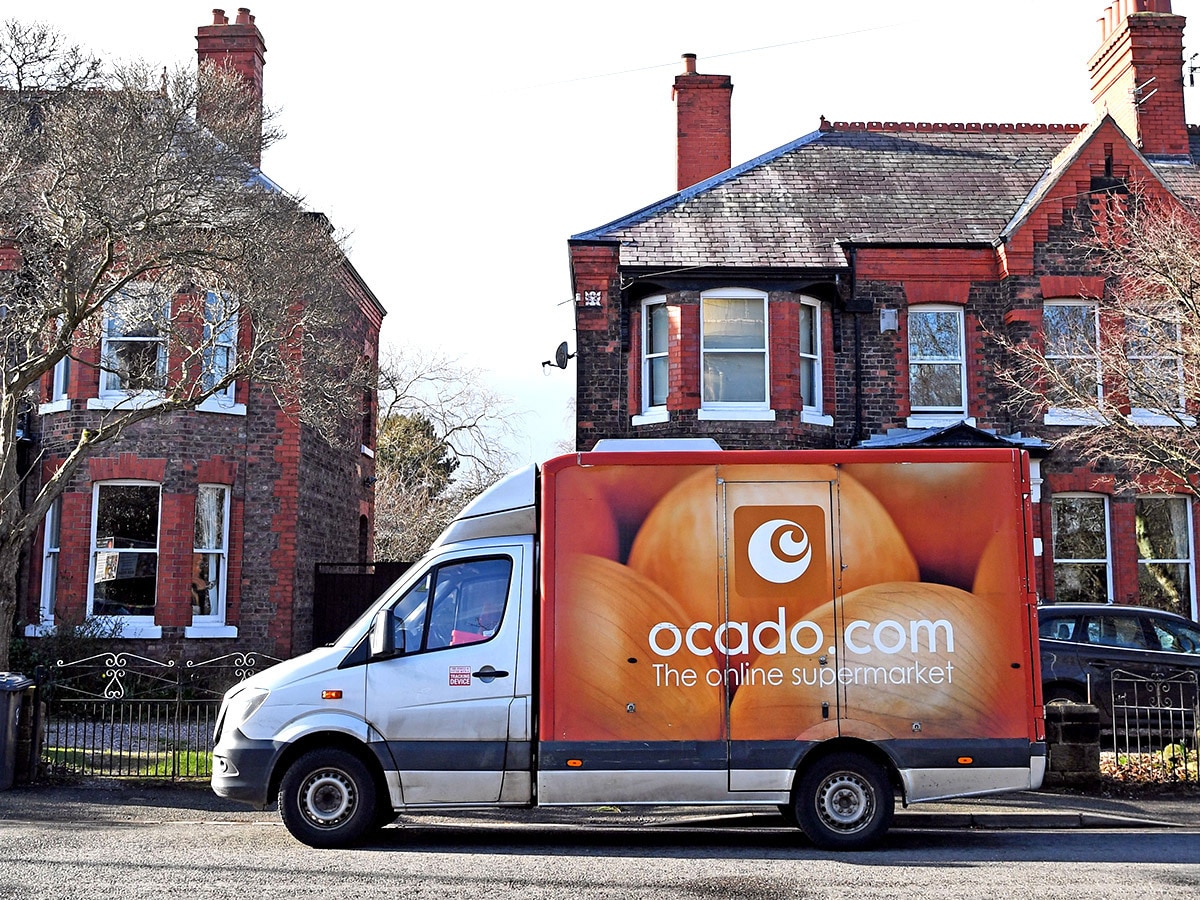The Ocado [OCDO] share price has halved since the start of last year, as investor concerns over increased spending on international expansion and lower-than-expected earnings have dragged the stock back down to pre-pandemic levels.
With the online retailer and grocery technology specialist gearing up for Thursday’s Q1 retail trading statement, covering the three months to the end of February, we look at the factors shaping the share price and consider the company’s prospects.
Ocado share price down as losses increase
After closing at 1,064p on 28 February 2020, the Ocado share price soared during the first wave of the Covid-19 pandemic. Lockdowns in the UK transformed Ocado into one of the pandemic’s winners, as shoppers switched to ordering groceries online. However, since reaching a record closing price of 2,914p on 30 September 2020, and returning close to those peaks last February during another UK lockdown, Ocado’s shares have trended downwards amid spiralling losses.
For the year to the end of November, Ocado reported a pre-tax loss of £176.9m, triple the previous year’s loss of £52.3m. That was despite group revenue rising 7.2% year-on-year to £2.5bn. As expected, EBITDA fell to £61m, down from £73.1m a year earlier, as the company invested in new warehouses and technology. Capital expenditure increased to £680.4m, and is set to rise to £800m this year as the company ramps up investment in its global technology business. Although bosses have repeated the by-now familiar refrain that they are investing in growth and delivering future profitability, investors seem to be losing patience in the idea that profits are just around the corner.
Nevertheless, despite the tumbling share price, a research note released by the Royal Bank of Canada last month set a target price of 1,700p, implying a 42% upside on current levels.
Post-lockdown prospects
The retailer, which has food delivery and technology partnerships with retailers including Marks & Spencer in the UK, Kroger in the US and Sobeys in Canada, benefited last year as shoppers continued to order groceries online. Although pandemic-era restrictions have eased, demand for home deliveries is likely to continue to grow in the long term.
Although higher costs and a fire at its distribution centre in Erith, south-east London, in July restricted Ocado’s sales growth last year, revenue from the retail segment of the business still increased 4.6% in the 2021 financial year. With nine distribution centres slated to open this year, on top of the 13 now in operation worldwide, there is scope for further revenue growth. New, lighter robots in its automated warehouses should help fulfil orders more quickly, helping Ocado compete with the rise of rapid delivery apps such as Weezy, Gorillas and Getir.
One risk comes from Ocado’s ongoing legal dispute with Norwegian storage technology rival AutoStore, whose case against Ocado arrived in the High Court in London yesterday. The global dispute, which has already cost Ocado £27.9m in litigation costs, relates to an alleged patent infringement, which Ocado denies. In December, the US International Trade Commission (ITC) ruled in Ocado’s favour, a decision which may bode well for the UK leg of the two firms’ protracted face-off. AutoStore plans to appeal the ITC’s ruling.
Meanwhile, Ocado has struck a deal with the European retailer Auchan to open a site in Poland by 2024. The London-listed firm will build a fulfilment centre near Warsaw to serve the city and surrounding area, while Auchan Poland will use Ocado’s software across its stores.
Management to underscore business fundamentals
Although the Ocado share price has struggled of late, there is a sense among some analysts and investors that the stock has simply corrected back to a more realistic, pre-pandemic level. Even at the current price, the shares give Ocado a market cap of around £9bn.
Although the company continues to incur losses as it expands and invests for the future, revenues are growing and legal wrangles are being settled in Ocado’s favour. Bosses are likely to highlight these positives, and deals such as the partnership with Auchan, when they release their Q1 retail trading statement at 7am on Thursday 17 March.






